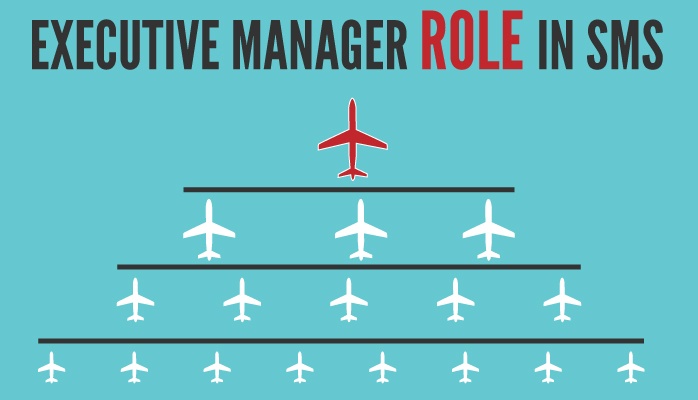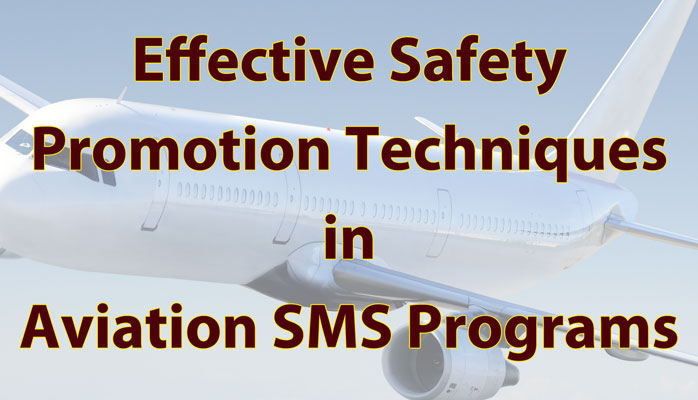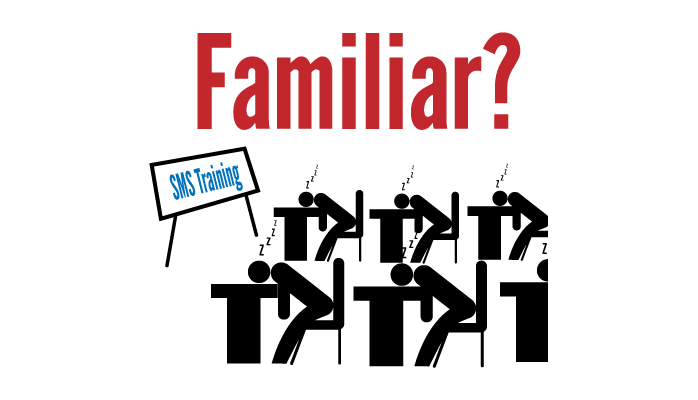Creative Safety Promotion: Engaging Aviation SMS with SMS Pro
Topics: 4-Safety Promotion
Managing Human Factors: Strategies to Reduce Pilot Error
Managing Human Factors
As aviation safety managers, ensuring the highest levels of safety is your top priority. While technological advancements have significantly improved aircraft reliability, human factors remain a leading cause of aviation incidents.
Pilot error, often tied to cognitive, physiological, or organizational issues, accounts for a substantial portion of accidents. This article explores actionable strategies to manage human factors effectively, reduce pilot error, and enhance overall aviation safety.
Topics: 4-Safety Promotion
Executive Overview of ICAO Annex 19 and Its Global Importance for Aviation Safety
For new aviation safety managers, preparing for Safety Management System (SMS) audits is a formidable challenge, especially when it involves coaching accountable executives and training staff on SMS concepts.
With limited experience, knowing where to start can feel overwhelming. At the heart of effective SMS implementation lies a clear understanding of ICAO Annex 19, the International Civil Aviation Organization’s cornerstone document for safety management. This global standard provides the framework for SMS, guiding organizations worldwide to enhance safety and meet regulatory expectations.
Topics: Aviation SMS Implementation, 4-Safety Promotion, 3-Safety Assurance, 1-Safety Policy, 2-Safety Risk Management, Risk Management Training
Key Points to Familiarize Executives with ICAO Annex 19, FAA, and EASA SMS Guidelines
For new aviation safety managers, preparing for Safety Management System (SMS) audits can feel overwhelming, especially when it comes to coaching accountable executives. These senior leaders, often focused on operational and financial priorities, may not be familiar with the intricacies of SMS or their critical role in ensuring compliance. Yet, their understanding of regulatory frameworks like ICAO Annex 19, FAA SMS guidelines, and EASA SMS requirements is essential for fostering a robust safety culture and passing audits.
Topics: 4-Safety Promotion, 3-Safety Assurance, 1-Safety Policy, Risk Management Training, FAA Compliance, Safety Culture
Summary of Accountable Executive SMS Responsibilities for Audit Preparation
For new aviation safety managers, preparing for a Safety Management System (SMS) audit can feel like navigating uncharted skies. A critical challenge is ensuring that accountable executives—senior leaders like CEOs, directors, or operations managers—understand and fulfill their SMS responsibilities.
These executives are pivotal in demonstrating compliance to regulators like the FAA, EASA, or ICAO, yet many lack the time or technical background to dive into the aviation SMS details.
Topics: Aviation SMS Implementation, 4-Safety Promotion, 3-Safety Assurance, 1-Safety Policy, 2-Safety Risk Management, FAA Compliance, Safety Culture
How to Launch a Safety Champion Program to Promote Aviation SMS
In aviation, where safety is paramount, a robust Safety Management System (SMS) is the cornerstone of risk management. For aviation safety managers and accountable executives—senior leaders responsible for SMS oversight—promoting SMS across an organization can be challenging, especially when training staff on complex concepts.
New safety managers often struggle to engage employees and foster a safety-first culture, while executives need practical ways to demonstrate leadership and compliance with standards set by the International Civil Aviation Organization (ICAO) and national authorities like the FAA or EASA.
Topics: 4-Safety Promotion
How to Train Your Aviation Team for SMS Compliance Without Overwhelm
Training Employees for SMS Compliance
Training your aviation team for Safety Management System (SMS) compliance can feel like navigating a storm. With time constraints, varying skill levels, and strict regulatory requirements from the FAA, EASA, and ICAO, the process can overwhelm even the most seasoned safety managers. But it doesn’t have to. By leveraging user-friendly tools like SMS Pro’s embedded training videos and Global Safety Training Portal, you can streamline aviation SMS training and empower your team without the stress.
Topics: Aviation SMS Database, 4-Safety Promotion, Risk Management Software, Risk Management Training
How Hazard Registers Boost Aviation SMS Safety Culture
A robust Safety Management System (SMS) is essential for managing risks and preventing incidents. For aviation safety managers and accountable executives—senior leaders responsible for SMS oversight—fostering a strong safety culture is a critical goal.
A Hazard Risk Register, a centralized tool for documenting and managing hazards, plays a pivotal role in achieving this by encouraging proactive hazard reporting, boosting staff engagement, and reinforcing a safety-first mindset.
Topics: 4-Safety Promotion, 2-Safety Risk Management, Risk Management Training, Safety Culture
7 Steps to Aviation SMS Training: Hazard Reporting & Just Culture
For aviation safety managers, training employees on Safety Management System (SMS) concepts is a critical yet challenging task. Within the high-stakes environment of aviation safety risk management, ensuring that staff understand hazard reporting, risk management, and just culture is essential for preventing incidents and maintaining compliance with standards set by the International Civil Aviation Organization (ICAO) and national civil aviation authorities like the FAA or EASA.
New safety managers often struggle to know where to start, as these concepts can seem abstract or complex to frontline workers like pilots, ground crew, or maintenance staff.
Topics: 4-Safety Promotion, 2-Safety Risk Management, Risk Management Training
Master the 4 Pillars of Aviation SMS: Safety Manager Guide
A robust Safety Management System (SMS) is the backbone of any organization striving to maintain operational excellence and protect lives.
For aviation safety managers and accountable executives, understanding the four pillars of SMS—Safety Policy, Safety Risk Management, Safety Assurance, and Safety Promotion—is critical to fostering a proactive safety culture and ensuring compliance with global standards like those set by the International Civil Aviation Organization (ICAO).
Topics: 4-Safety Promotion, 3-Safety Assurance, 1-Safety Policy, 2-Safety Risk Management
Site content provided by Northwest Data Solutions is meant for informational purposes only. Opinions presented here are not provided by any civil aviation authority or standards body.













